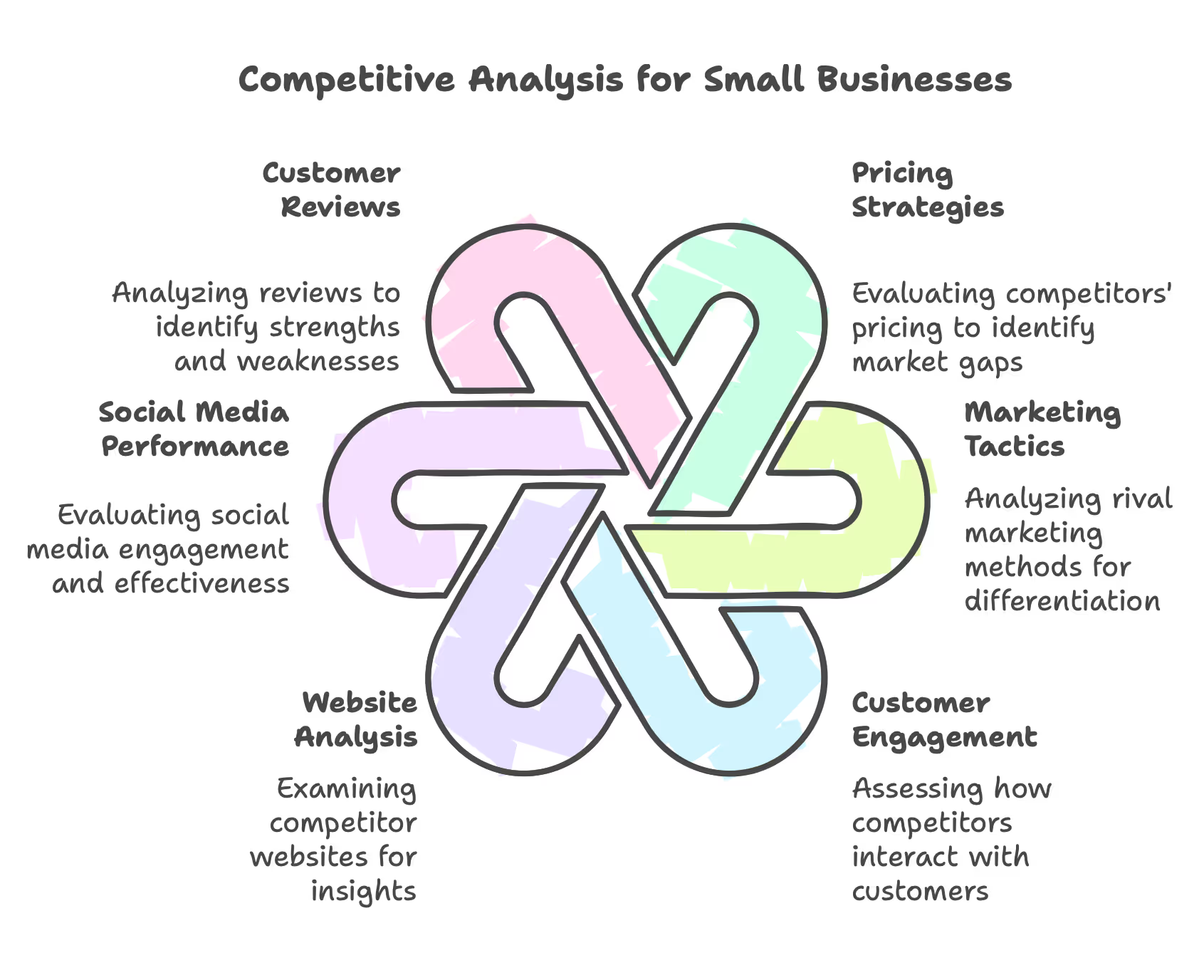
What would you do with a smart assistant who could explore the world wide web to learn, document and create detailed reports on what they've found? That's exactly what Deep Research tools from OpenAI, Google, XAI and Perplexity are capable of right now!
In today's fast-paced business world, small enterprises tend to lack the large-scale resources of bigger competitors. However, artificial intelligence can help grow small businesses, and deep research in particular – a tool offering comprehensive, data-driven analysis to organisations that may otherwise not have had access to them – can level the playing field, helping SMEs compete with larger scale corporations. By employing strategic research methods, small businesses can uncover new insights, refine their strategies, and stay ahead of market trends.
From understanding customer behaviour to identifying hidden opportunities, deep research provides a roadmap for smarter decision-making. This article explores eleven effective ways small businesses can harness deep research to drive success.
Deep research enables businesses to go beyond surface-level demographics and truly understand their audience's behaviours, preferences, and pain points. Conducting customer surveys, analysing online interactions, and utilising social media listening tools can offer valuable insights into what your potential customers need – helping you tailor products and services accordingly.

Keeping an eye on competitors is crucial for staying relevant. Through competitive research, small businesses can evaluate rivals’ pricing strategies, marketing tactics, and customer engagement efforts. Analyzing competitor websites offers insights into branding and user experience, while social media performance reveals engagement levels and content effectiveness. Customer reviews highlight strengths and weaknesses, helping businesses refine their offerings. By examining these factors, businesses can identify market gaps, improve their strategies, and differentiate themselves in a crowded marketplace.
Research-driven product development minimises the risks associated with launching new offerings. By examining customer feedback, market trends, and industry reports, businesses can gain clarity on what works and what doesn’t. This approach ensures that new products or services align with market demand, reducing the likelihood of failure.
Deep research helps businesses craft highly targeted content by identifying what their audience is searching for. Keyword research tools, industry reports, and competitor content analysis can guide content creation efforts, ensuring blog posts, videos, and social media updates are optimised for engagement and SEO.
By analysing customer journey data, small businesses can identify pain points and areas for improvement. Studying user behaviour on websites, reviewing customer support interactions, and gathering post-purchase feedback can lead to a more streamlined and satisfying customer experience – ultimately boosting retention and loyalty.
Pricing can make or break a business. Deep research allows small enterprises to explore competitor pricing structures, assess customer willingness to pay, and adjust pricing models accordingly. A balance between affordability and profitability, based on solid data analysis, ensures that pricing remains competitive yet sustainable.

Industry trends shift rapidly, and businesses that fail to adapt risk losing relevance. By conducting thorough industry analysis, companies can anticipate consumer behavior changes, emerging technologies, and regulatory shifts. Subscribing to market research reports, attending industry conferences, and tracking trend forecasts provide critical insights for staying ahead of competitors. Proactively adapting to these trends ensures long-term business success
Investing in advertising without research can lead to costly mistakes. Conducting A/B tests, analysing past campaign performance, and researching customer preferences can refine ad targeting, messaging, and budget allocation. Effective deep research ensures higher ROI on paid ad spend.
Every major business decision – whether it’s expansion, hiring, or launching a new service – should be backed by research. Gathering relevant data through financial analysis, competitor benchmarking, and market demand studies allows business owners to make informed choices that minimise risks and maximise returns.
Deep research goes beyond customers and competitors – it plays a critical role in supply chain optimisation. Evaluating supplier pricing, assessing distribution channels, and researching new sourcing opportunities can lead to cost reductions and improved efficiency, enhancing overall business operations.
Deep research tools can also revolutionise the process of identifying and enhancing critical skills within any organisation. With Deep Research, you can sift through vast amounts of data – from employee performance metrics to industry benchmarks – to pinpoint skill gaps and emerging competencies.
Deep Research can analyse trends, track evolving market demands, and even assess training outcomes, enabling small businesses to craft targeted upskilling programmes to ensure their employees are staying up to date with competitors. In doing so, not only is your workforce empowered to meet current challenges, but it also becomes primed to capitalise on future opportunities, giving your business a significant competitive edge.
Deep research isn’t just for large corporations – it’s a powerful tool that entrepreneurs and small business owners can leverage to gain a competitive edge. But as with any tool, knowledge is key to unlocking its true potential
Whether you’re refining a marketing strategy, launching a new product, or improving customer experience, the evidence-based insights gained through deep research will help you stay ahead in an increasingly competitive landscape.
Now is the time to start integrating data-driven research into your business strategy. If you need help identifying where and how you can make use of AI in your business, book in for a free AI consultation today!
